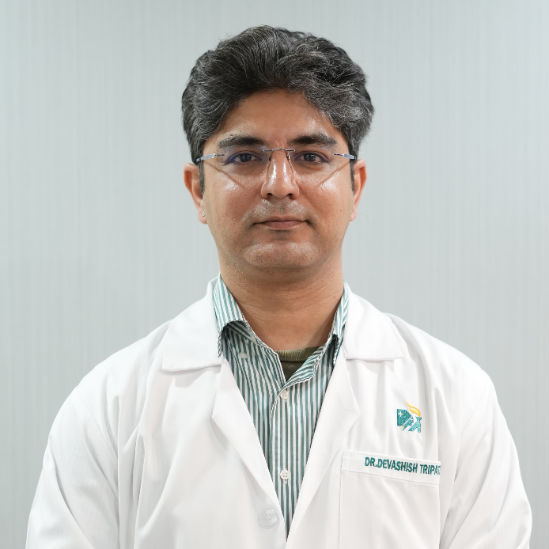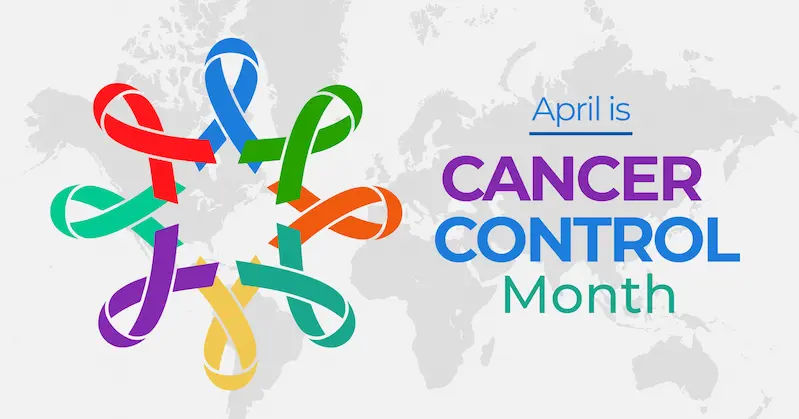Guide to Decisions: Cancer Treatment Can Be Tough, But You Can Take the Right Move
Learn how to make informed decisions about cancer treatment. Understand your diagnosis, explore treatment options, align with personal values, and build a support system.

Written by Dr. Md Yusuf Shareef
Reviewed by Dr. Dhankecha Mayank Dineshbhai MBBS
Last updated on 13th Jan, 2026

Introduction
Hearing the words “you have cancer” is a life-altering moment. In the whirlwind of emotions that follows, you’re quickly faced with another monumental challenge: making critical decisions about your treatment. The path forward can seem shrouded in fog, with each option carrying its own set of potential benefits, risks, and uncertainties. It’s completely normal to feel overwhelmed, scared, and pressured. This guide is designed to cut through that fog. We will walk you through a structured approach to navigating these tough cancer decisions, helping you move from a place of anxiety to one of empowered action. You will learn how to gather information, evaluate your options against your personal values, build a strong support system, and ultimately, make the choice that feels right for you.
Why Cancer Treatment Decisions Feel So Overwhelming
Before diving into the "how," it's important to acknowledge the "why." Understanding the sources of your stress is the first step toward managing it. The feeling of being overwhelmed isn't a sign of weakness; it's a rational response to an incredibly difficult situation.
The Emotional Tsunami: Fear, Anxiety, and Pressure
A cancer diagnosis triggers a primal fear response. You might be grappling with fears about mortality, pain, the well-being of your family, and the loss of your normal life. This emotional turmoil can make it hard to think clearly. Add to this the pressure to make quick decisions—often feeling like your life depends on it—and it's a recipe for decision fatigue and paralysis.
Information Overload: Navigating a Sea of Complex Data
Your oncologist will present you with information about treatment modalities like surgery, chemotherapy, radiotherapy, immunotherapy, and targeted therapy. Each comes with a unique vocabulary, statistics on efficacy, and a long list of potential side effects. Trying to become an instant expert while processing your emotions is like drinking from a firehose. This information overload is a common barrier to clear decision-making.
The Weight of the Stakes: Balancing Quality and Quantity of Life
Perhaps the heaviest burden is the trade-off between the length of life and its quality. An aggressive treatment might offer a better chance of survival but could significantly impact your daily life for months or years. A less invasive option might preserve your quality of life but carry a different statistical outcome. Balancing these profound considerations is at the heart of why cancer treatment choices are so tough.
Your Step-by-Step Guide to Making Informed Cancer Care Choices
Breaking the process down into manageable steps can restore a sense of control. Think of this not as a single, giant leap, but as a series of smaller, deliberate steps.
Step 1: Get the Facts Straight – Understanding Your Diagnosis
You can't make a decision without a clear starting point. Ensure you fully understand your specific diagnosis.
• Cancer Type and Stage: Exactly what kind of cancer is it? Where is it located? How far has it spread (the stage)?
• Biomarkers: Are there specific genetic markers or proteins that could make you eligible for targeted therapies?
• Treatment Goals: Is the goal curative (to eliminate the cancer), adjuvant (to prevent recurrence after surgery), or palliative (to manage symptoms and slow growth)? Consult an Oncologist for the best advice
Key Questions to Ask Your Oncologist
• "What is the standard of care for my specific type and stage of cancer?"
• "What is the goal of each treatment option you're presenting?"
• "What are the potential short-term and long-term side effects of each option?"
• "How will this treatment impact my daily life (work, family, hobbies)?"
• "If symptoms from treatment become difficult to manage at home, can I consult a specialist online with Apollo24|7 for immediate advice?"
Step 2: Explore Your Arsenal – A Look at Modern Treatment Options
Today, cancer treatment is more personalised than ever. Beyond traditional chemotherapy, options may include:
• Precision Medicine: Treatments that target specific genetic abnormalities in your cancer cells.
• Immunotherapy: Drugs that help your own immune system recognise and attack cancer.
• Minimally Invasive Surgery: Techniques that lead to faster recovery times.
Ask your doctor to explain the "why" behind each recommended option. For example, "We are recommending immunotherapy because your tumour testing showed a high level of PD-L1, which suggests your body will respond well to it."
Step 3: Align Treatment with Your Personal Values and Goals
This is the most personal step. Medical data provides the map, but your values are the compass. Ask yourself:
• What does quality of life mean to me? Is it being able to work? Travel? Spend energy with family?
• What are my biggest fears about treatment? Is it certain side effects like nausea or cognitive changes?
• What are my long-term goals?
Discussing these priorities with your doctor ensures your care plan is tailored to you, not just your disease.
Step 4: The Power of a Second (or Third) Opinion
Seeking a second opinion for cancer diagnosis is a standard and encouraged practice. It is not a sign of distrust. Another specialist might:
• Confirm the original treatment plan, giving you greater confidence.
• Offer access to a new clinical trial or a different approach.
• Provide additional expertise on a complex case.
Most insurance companies cover second opinions. Reputable institutions like Apollo24|7 can facilitate connections with leading oncologists for comprehensive evaluations.
Building Your Support System: You Don't Have to Decide Alone
The burden of decision-making should not rest solely on your shoulders. Building a team is crucial.
Leveraging Your Healthcare Team
Your oncologist, nurses, and social workers are your primary allies. They have the medical knowledge. Be open with them about your fears and questions. They can't make the decision for you, but they can ensure you have all the information and support you need.
Involving Family and Friends Effectively
Choose a trusted friend or family member to accompany you to appointments. They can take notes, ask questions you might forget, and provide emotional support. However, be clear about your boundaries. Ultimately, it is your body and your life; the final decision is yours.
Finding Solace in Support Groups and Counsellors
Connecting with others who are on a similar path can be incredibly validating. Support groups (online or in-person) and oncology-specific therapists can provide coping strategies for the anxiety and stress that accompany these tough decisions.
Navigating Common Dilemmas in Cancer Treatment Plans
Standard of Care vs. Clinical Trials: Weighing the Options
The "standard of care" is the best-proven treatment. A clinical trial investigates new, promising approaches. The dilemma: opting for the known versus the potential of a breakthrough. There's no right answer. Discuss with your doctor whether a trial is appropriate, considering factors like your current health, previous treatments, and the trial's phase and potential benefits.
Aggressive Treatment vs. Palliative Care: It's Not Black and White
A common misconception is that palliative care is only for the end of life. In reality, palliative care can be integrated at any stage to manage symptoms and improve quality of life, even while pursuing curative treatment. It's about treating the whole person, not just the disease.
When the Path is Still Unclear: Trusting Your Instincts
After you've gathered the facts, consulted experts, and reflected on your values, there may still not be a definitively "correct" choice. This is where you must learn to trust your instincts. Which path gives you a greater sense of peace? Which option aligns more closely with the life you want to live, regardless of the outcome? This gut feeling, informed by all your research, is a powerful and valid guide.
Conclusion: Empowering Yourself on Your Cancer Journey
Facing cancer treatment decisions is undoubtedly one of life's greatest challenges. The path is tough, but it is not one you have to walk blindly or alone. By methodically gathering information, clarifying your personal values, and building a robust support system, you can transform an overwhelming predicament into a series of manageable choices. Remember, the "right" decision is not always the one with the best statistical outcome, but the one that allows you to face your treatment with clarity, purpose, and a sense of control over your journey. Empower yourself with knowledge, surround yourself with support, and trust in your ability to take the right move for you.
Consult an Oncologist for the best advice
Consult an Oncologist for the best advice

Dr Gowshikk Rajkumar
Oncologist
10 Years • MBBS, DMRT, DNB in Radiation oncology
Bengaluru
Apollo Clinic, JP nagar, Bengaluru

Dr.sanchayan Mandal
Medical Oncologist
17 Years • MBBS, DrNB( MEDICAL ONCOLOGY), DNB (RADIOTHERAPY),ECMO. PDCR. ASCO
Kolkata
Dr. Sanchayan Mandal Oncology Clinic, Kolkata

Dr. Sanchayan Mandal
Medical Oncologist
17 Years • MBBS, DrNB( MEDICAL ONCOLOGY), DNB (RADIOTHERAPY),ECMO. PDCR. ASCO
Kolkata
MCR SUPER SPECIALITY POLY CLINIC & PATHOLOGY, Kolkata

Dr Devashish Tripathi
Radiation Specialist Oncologist
20 Years • MBBS, PLAB, MRCP (UK)- General Medicine, FRCR (Oncology), Certificate of Completion of Training (CCT)- Clinical Oncology
Delhi
Apollo Hospitals Indraprastha, Delhi

Ms. Hiba Siddiqui
Oncologist
13 Years • BA (Hons), MA, Professional Certification Psycho-oncology, PhD
Delhi
Apollo Hospitals Indraprastha, Delhi
Consult an Oncologist for the best advice

Dr Gowshikk Rajkumar
Oncologist
10 Years • MBBS, DMRT, DNB in Radiation oncology
Bengaluru
Apollo Clinic, JP nagar, Bengaluru

Dr.sanchayan Mandal
Medical Oncologist
17 Years • MBBS, DrNB( MEDICAL ONCOLOGY), DNB (RADIOTHERAPY),ECMO. PDCR. ASCO
Kolkata
Dr. Sanchayan Mandal Oncology Clinic, Kolkata

Dr. Sanchayan Mandal
Medical Oncologist
17 Years • MBBS, DrNB( MEDICAL ONCOLOGY), DNB (RADIOTHERAPY),ECMO. PDCR. ASCO
Kolkata
MCR SUPER SPECIALITY POLY CLINIC & PATHOLOGY, Kolkata

Dr Devashish Tripathi
Radiation Specialist Oncologist
20 Years • MBBS, PLAB, MRCP (UK)- General Medicine, FRCR (Oncology), Certificate of Completion of Training (CCT)- Clinical Oncology
Delhi
Apollo Hospitals Indraprastha, Delhi

Ms. Hiba Siddiqui
Oncologist
13 Years • BA (Hons), MA, Professional Certification Psycho-oncology, PhD
Delhi
Apollo Hospitals Indraprastha, Delhi
More articles from Cancer
Frequently Asked Questions
1. How long do I usually have to make a treatment decision after a cancer diagnosis?
While it's natural to feel rushed, most cancers do not require immediate treatment within hours or even days. You typically have a few weeks to gather information and seek second opinions without negatively impacting your prognosis. Urgency depends on the cancer type and stage, so this is a critical first question to ask your doctor.
2. What if my family members disagree with the treatment choice I want to make?
This is a common and difficult situation. Open communication is key. Explain your reasoning, focusing on your personal values and goals. Consider involving a hospital social worker or therapist to facilitate the conversation. Ultimately, while their input is valuable, the decision about your body rests with you.
3. Is it okay to choose a treatment that focuses on quality of life over potentially living longer?
Absolutely. This is a deeply personal choice. Many patients decide that a treatment offering a better quality of life, even if it might be statistically shorter, is the right path for them. This is a valid and respected decision that should be discussed openly with your healthcare team.
4. How can I better understand the complex statistics my doctor shares?
Ask your doctor to explain statistics in plain language. Instead of just '70% survival rate,' ask, 'What does that mean for someone my age and with my health profile?' Request visual aids or analogies. Don't hesitate to say, 'Can you explain that again? I want to make sure I understand.'
5. What should I do if I feel rushed or dismissed by my oncologist?
Your comfort and trust in your medical team are paramount. If you feel your concerns are not being heard, it is a strong sign to seek a second opinion. A good doctor will welcome your questions and partner with you in the decision-making process.




